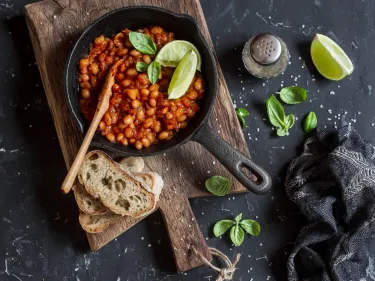The average household spends $75 per week on meals away from the home. This adds up to over $3700 a year. You have to work a lot of hours to earn that much money. While life today is fast paced, taking time to cook at home more is one way to slow down and save money as well, especially with the costs of living increasing. Staying in’ for a “fakeaway” will likely help your budget and your health and wellbeing.
Let’s look at the budget breakdown in more detail ↓
Takeaway:
1 x commonly purchased burger (beef, salad, cheese)
1x small serving of fries
1 x small drink
Total cost = $12.40
Here's the nutrition information per serve of the takeaway burger:
- Energy (2360kJ)
- Protein (26.9g)
- Total fat (31.3g)
- Saturated fat (11.8g)
- Carbohydrates (41.8g); Added sugars (7.0g)
- Sodium (1020mg)
Fakeaway:
1 x serving of rosemary baked potato wedges
1 x soda water with lime
Total cost = $5.62
Here’s the nutrition information per serve of the "fakeaway" burger:
- Energy (2240kJ)
- Protein (45.8g)
- Total fat (17.1g)
- Saturated fat (6.4g)
- Carbohydrates (44.3g); Added sugars (1.1g)
- Sodium (743mg)
Timesaving tips!
- Cook 4 meat patties at once and freeze the ones you are not using to make your next home burger meal even faster next time.
- Individually freeze unused bread rolls so you can easily defrost exactly what you need.
Preparing your own “Fakeaway” gives you more control over you’re the ingredients. This means you can boost nutrient packed foods which can help lower your risk of chronic disease. Plus, you can save over $300 each year!
For more “Fakeaway” ideas try some of these options:













